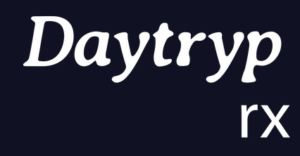The Psychedelic Shift: Advocates’ Role In Reshaping The Psychedelic Renaissance – The resurgence of interest in psychedelics represents a significant cultural and societal shift. Once relegated to the counterculture of the 1960s, psychedelics are now gaining recognition as potential tools for healing, self-discovery, and mental health support. As the leading health and wellness clinic, specializing in ketamine therapy and the intentional use of psychedelic medicine, Daytryp Health deeply committed to exploring the profound impact of this psychedelic renaissance on reshaping the landscape of healthcare in the United States and across the world.
The Psychedelic Renaissance: A Cultural Shift
- The Historical Context: Psychedelics, including substances like LSD, psilocybin, and DMT, gained prominence in the 1960s as part of a cultural and countercultural movement. They were associated with rebellion, anti-establishment sentiments, and profound experiences of self-discovery.
- The Dark Ages: In the wake of the counterculture movement and amid concerns about misuse and adverse effects, many psychedelics were classified as Schedule I substances in the United States and banned in many other countries. This restrictive classification severely limited research and therapeutic use of these substances for decades.
- The Renaissance Emerges: In recent years, there has been a resurgence of interest in psychedelics, driven by a growing body of research supporting their potential therapeutic benefits. This has prompted a reevaluation of their cultural and medical significance.
- Evidence-Based Insights: Modern research has revealed the therapeutic potential of psychedelics for a range of mental health conditions, including depression, anxiety, PTSD, and addiction. Studies have shown that these substances can induce profound and often transformative experiences that contribute to healing and personal growth.
The Psychedelic Renaissance: Advocates Leading the Way
The shift in societal views and policies surrounding psychedelics is, in large part, due to the dedication and advocacy efforts of various individuals and groups. These advocates have played a pivotal role in reshaping perceptions and pushing for more rational, evidence-based policies.
- Researchers and Clinicians: Scientists and healthcare professionals have been at the forefront of psychedelic research, conducting rigorous studies that have demonstrated the therapeutic potential of these substances. Their work has provided the foundation for changing perspectives.
- Psychedelic-Assisted Therapy Practitioners: Therapists and clinicians specializing in psychedelic-assisted therapy have been instrumental in delivering these treatments to patients in controlled, therapeutic settings. They share their experiences and contribute to the growing body of evidence supporting the efficacy of psychedelics.
- Psychedelic Societies and Organizations: Numerous organizations, such as MAPS (Multidisciplinary Association for Psychedelic Studies), the Beckley Foundation, and the Heffter Research Institute, have been dedicated to advancing psychedelic research, education, and advocacy. They have fostered collaboration among researchers, clinicians, and policymakers.
- Patient Advocates: Individuals who have personally benefited from psychedelic-assisted therapy have become passionate advocates for these treatments. Their stories and testimonials have played a crucial role in destigmatizing psychedelics and raising awareness about their potential.
The Psychedelic Renaissance: Changing Policies and Regulations
As the societal landscape evolves, so do policies and regulations surrounding psychedelics. Some notable developments include:
- Research Expansion: Countries like the United States, Canada, and several in Europe have expanded research opportunities for psychedelics. They have allowed controlled studies exploring the therapeutic potential of substances like psilocybin and MDMA.
- Decriminalization Efforts: Some cities and states in the U.S., including Denver, Colorado, and Oakland and Santa Cruz, California, have decriminalized the possession and use of certain psychedelics. These measures reflect a shift toward viewing psychedelic use through a public health, rather than a criminal justice, lens.
- Medicalization: Efforts are underway to medicalize certain psychedelics. For example, the FDA has granted “breakthrough therapy” designation to psilocybin-assisted therapy for depression, accelerating its path to potential approval as a prescription medication.
- Regulatory Frameworks: Regulatory frameworks are being developed to ensure the safe and responsible use of psychedelics. These frameworks prioritize harm reduction, patient safety, and professional training.
The Psychedelic Renaissance: The Ethical Imperative
- Safety and Oversight: Advocates are keenly aware of the importance of safety and oversight in the use of psychedelics. They emphasize the need for rigorous standards, professional training, and ethical guidelines to minimize risks and ensure positive outcomes.
- Equity and Access: Advocates are committed to addressing issues of equity and access. They strive to ensure that psychedelic therapies are available to diverse populations, including underserved communities, and that the benefits of these treatments are not limited to a privileged few.
- Public Education: Advocates recognize the importance of public education and awareness. They work to dispel myths, provide accurate information, and promote responsible use of psychedelics.
Commitment to Advancing Responsible and Evidence-based Approaches
The psychedelic shift, marked by a resurgence of interest in these substances and their therapeutic potential, represents a profound transformation in our society. Advocates, including researchers, clinicians, patient advocates, and organizations, have been instrumental in driving this shift and reshaping societal views and policies surrounding psychedelics.
As a Phoenix ketamine therapy clinic dedicated to the intentional use of psychedelic medicine, Daytryp Health is committed to advancing responsible and evidence-based approaches to their therapeutic use. It is imperative that we continue to work collaboratively to ensure that psychedelics are integrated into our healthcare systems in a safe, ethical, and inclusive manner. Through ongoing research, education, advocacy, and responsible regulation, we can harness the transformative power of psychedelics to support emotional, spiritual, and mental health and promote healing and well-being for individuals and society as a whole.










 Daytryp Health has taken
Daytryp Health has taken  The
The 